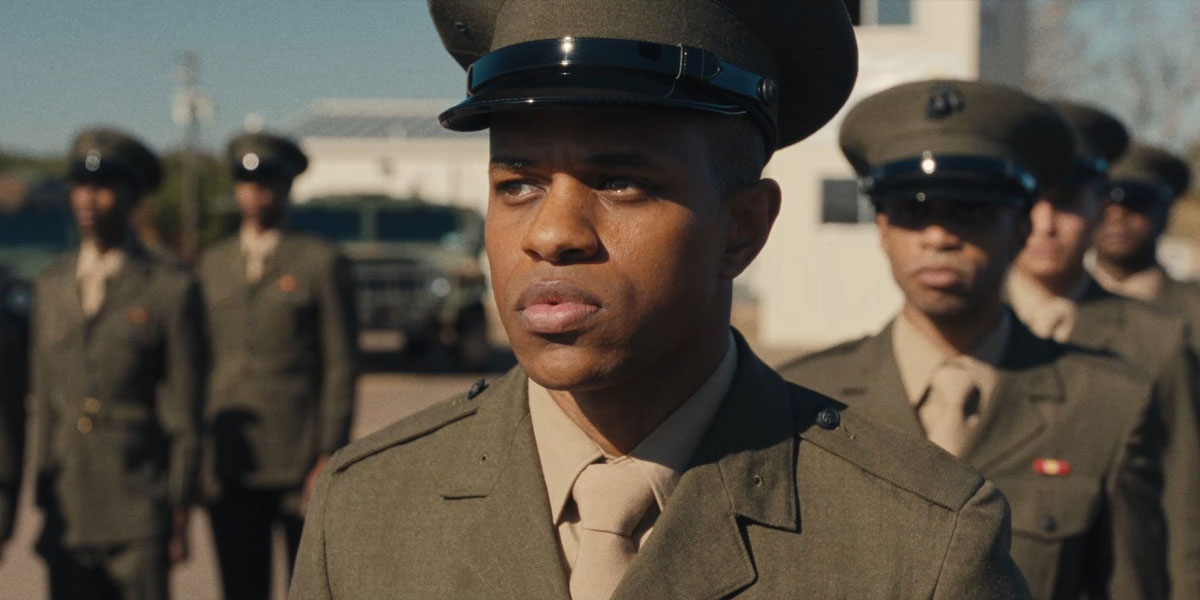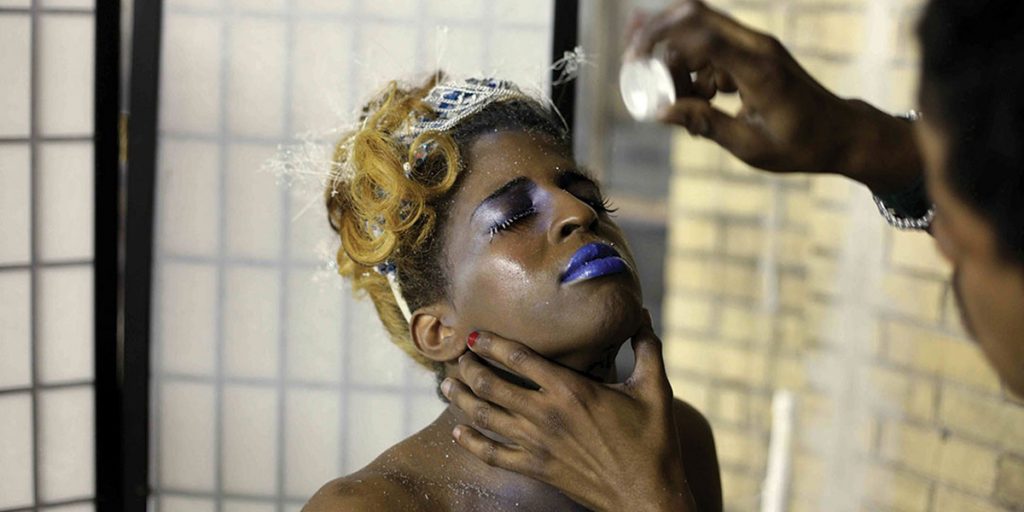Elegance Bratton’s Pier Kids is a sobering documentary that highlights the struggle LGBTQ youth of colour face on New York City’s Christopher Street Pier.
On the Christopher Street Pier, less than a mile from the Stonewall Inn, is a community of LGBTQ youth, predominantly of colour, who are a found family. A mere ten minute walk from the site of perhaps the most important event in the LGBTQ rights movement – the Stonewall Riots of 1969 – is an area in which the vulnerable congregate to feel safe. Elegance Bratton’s Pier Kids is a documentary that shines a spotlight on this oft-ignored subsection of New York City society: the homeless, LGBTQ people of colour, whose reliance on sex work and theft is commonly treated with judgement or revulsion. But Pier Kids offers them a chance to openly discuss the realities of their lives without stigma, and instead invites the condemnation of a society and a government that continues to force them to live this way.
The predominant focus of Bratton’s film are three individuals – Krystall Labeija, a transgender woman; Jusheem ‘Casper’ Thorne, a bisexual man, and Desean Irby, a gay man – who live in a constant state of flux and uncertainty, whilst trying to establish stable home and work lives. They also all come from families that offer conditional love, in the sense that they refuse to fully accept aspects of their sexual and gender identities. One of Pier Kids’ most powerful scenes sees Krystall sitting with her mother and aunt, both of whom consistently refer to her as ‘my son’ and ‘my nephew’ respectively. Despite denying it is a sign of disrespect, it’s heart-breaking to watch them continuously misgender Krystall and refute her place as a woman. Krystall sits off to the side in silence, and Bratton doesn’t encourage confrontation, simply lets the audience see the effect it has by the pain and resignation visible on her face.
Another impactful scene is when Desean is discussing his options. Having earlier described his occasional reliance on theft – or, as he terms it, having to ‘confiscate’ basic necessities – Desean explains that because he is HIV negative, with no obvious disability, there is no means for New York City to ‘manipulate in his favour’ and secure him housing. As such, he has genuinely contemplated becoming HIV positive, as he reckons it’d secure him a stable situation within days. It’s a harrowing insight into the desperation faced by America’s LGBTQ youth of colour and the consistency in which people like Krystall, Casper and Desean must put themselves into dangerous situations by necessity for ‘financial benefit’, for a means of securing themselves shelter or to simply afford a decent meal.
Bratton’s film doesn’t concern itself too much in the political, and instead lets the people directly impacted by societal prejudices and discriminations tell it how it is. There’s a naturalistic connection between Bratton’s camera and his subjects; clearly a huge amount of mutual respect and trust that allows for such open, honest and frank conversation. Bratton doesn’t insert himself into the documentary, simply asks questions from off-camera and lets Krystall, Casper, Desean and various others tell him their stories. He emphasises the sense of community on Christopher Street Pier, the sense of it being a place in which people can find the sources of love, connection and acceptance that they lack from their own families.
Pier Kids begins with a commanding title card that states how ‘the world cheered the advancement of white queers and ignored the fates of queer people of colour’ post-Stonewall. It gives the shocking statistics that half of America’s two-million plus homeless youth are part of the LGBTQ community, and that 40% of them are people of colour. Bratton uses the film as a means in which to show the realities of this 40%, but the film does lose focus slightly when it pulls back from the individual stories for a wider scope.
When the camera is placed within scenes of relative chaos, on crowded street corners with heavy police presence and a cacophony of voices arguing and overlapping, it becomes less accessible. Perhaps the purpose is to emphasise that Krystall, Casper and Desean are but three of an entire community, and that’s admirable and evident, but it’s less engaging when a swirling group of people are reacting to the realities of their environment, as opposed to a more personal story. Pier Kids is at its best when it lets the audience connect with Krystall, Casper and Desean; when it lets them discuss their lives without shame or fear of judgement, as it highlights the injustices and incomprehensible societal failings they’ve suffered. Perhaps it could’ve done to keep that focus throughout, and let the knowledge that they’re not outliers permeate through that personal connection.
Overall, Pier Kids is an affecting, important documentary that serves as a slice of life piece, highlighting the struggle LGBTQ youth of colour face in America. It’s not a comprehensive look, nor does it offer resolution because society often doesn’t in ‘unsavoury’ situations like these, but it impacts on a human level. Bratton offers a glimpse into the struggle without being exploitative or salacious, and succeeds in emphasising Christopher Street Pier as a community, rather than just an area of New York City.
Pier Kids is now available to watch on digital and on demand. Read our review of Elegance Bratton’s The Inspection.

 loudandclearreviews.com
loudandclearreviews.com
